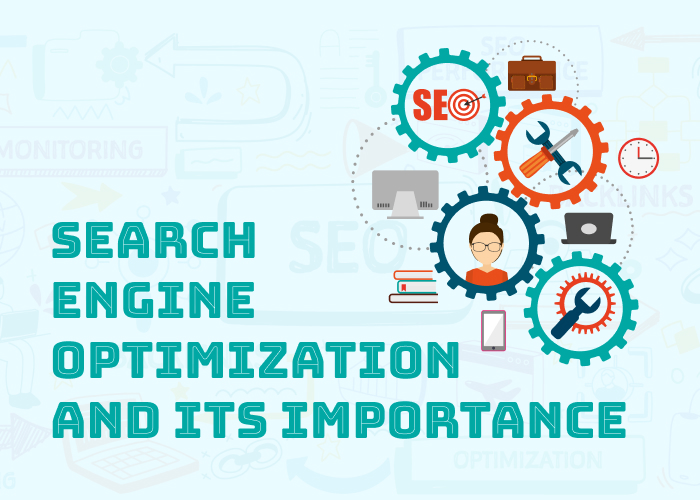Search engine optimization and its importance

The Importance of SEO:
- Increased Visibility and Traffic: SEO ensures that your content appears prominently in search results, driving organic traffic to your website. The higher your ranking, the more likely users are to click on your content.
- Credibility and Trust: Websites ranking high on search engine results pages (SERPs) are often perceived as more trustworthy and credible. SEO helps build and maintain a positive online reputation.
- Cost-Effectiveness: Compared to paid advertising, SEO is a cost-effective long-term strategy. While paid campaigns can drive immediate traffic, SEO efforts continue to yield results over time.
- Understanding User Behavior: SEO tools provide insights into user behavior, helping you understand what your audience is searching for. This data can inform content creation and marketing strategies.
- Adaptation to Algorithm Changes: Search engines frequently update their algorithms. SEO allows you to adapt to these changes, ensuring that your content remains relevant and visible.
Things to do for SEO
Let’s cover some fundamental Search Engine Optimization procedures first before moving on to the precise actions you must take to improve your Google ranking.
User Experience
The whole browsing experience that a user has on your website is referred to as the user experience (UX). Both directly and indirectly, UX affects SEO.
Poor UX might cause Google users to spend less time on your website, which can have a direct effect on SEO and swiftly leave your website. They both imply to Google that your website doesn’t deserve to be on the top page. A strong user experience may boost SEO indirectly by demonstrating to visitors that your website is a valuable resource, which attracts more backlinks.
Content
The initial stage in developing SEO-friendly content is to find the keywords. Furthermore, you need to find what precisely is search intent. The fundamental reason a person searches for a certain term is known as search intent. Consider the term “mobile app development,” for instance.
Do they intend to hire someone for business purposes? or Do they have the intention of learning more about it? Google can determine whether or not your website meets searcher intent. In such a case, your ranks will rise. Therefore, you must determine whether a searcher wants to view instructional and instructive information or buy something before you write a single word.
On-Page SEO
Individual web pages are optimized as part of on-page SEO in order to raise their search engine ranks and draw in more organic visitors. Craft compelling and descriptive title tags and meta descriptions that include your target keywords. Furthermore, it includes creating clean and user-friendly URLs that include target keywords. Images and pages must be optimized for Search Engine Optimization as the page speed has a direct effect on SEO.
Link Building
Link building is a crucial aspect of off-page SEO that involves acquiring high-quality backlinks to your website from reputable sources. This involves writing guest posts and building links with authoritative websites. Furthermore, you can submit the website to the online directories.
Conclusion
In conclusion, mastering the fundamentals of Search Engine Optimization is a powerful step toward enhancing your online presence. From keyword research to on-page optimization and strategic link building, the journey into SEO involves continuous learning and adaptation. As you navigate this dynamic landscape, remember that SEO is not just about pleasing search engines; it’s about delivering value to your audience. Stay consistent, stay informed, and enjoy the process of optimizing your digital content for both visibility and user satisfaction.
FAQs
How long does it take to see results from SEO efforts?
Can I do SEO on my own, or do I need a professional?
Is SEO only about ranking on Google?
Are paid ads necessary for SEO success?
How often should I update my content for SEO?
Ravi Bhojani is the Chief Marketing Officer (CMO) at Alian Software, where he spearheads the company’s marketing strategies and drives its brand presence in the competitive IT services landscape. With over a decade of experience in the technology and marketing sectors, Ravi has consistently demonstrated his ability to blend innovative marketing techniques with deep industry knowledge to deliver outstanding results.